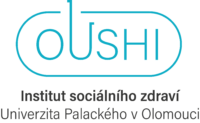Horizon
Horizon, the Framework Programme for Research and Innovation, is the largest and most important programme funding science, research and innovation at European level for the period 2014-2020. It is a programme of the European Commission. It launches calls for proposals, sets the budget and deadlines.
Applicants compete for support with applicants from EU Member States and other countries.
ONGOING PROJECTS
Smart and healthy ageing through people involved in a support system
Project type: Horizon 2020
Project Number: SEP-210543269
Total support: EUR254 826,25
Implementation period: 11/2019-2023
This project aims to create an integrative IT platform that brings together a wide range of digital solutions aimed at improving health indicators, well-being, and independence of people in an ageing population. The potential to tackle the challenges, especially of older citizens, but also of families and service providers, is the reason for the creation of this platform. It will offer a network of extensive, interconnected digital services and products. These solutions will primarily assist older people facing temporary or permanent impairment of their physical or mental capabilities, but above all will help healthy people to maintain their health for as long as possible.
European Cooperation in Science and Technology
Project type: Horizon 2020
Project Number: OC-2018-2-23249
The project's main outcome is to create an international network of experts to incorporate best practices addressing the challenges of each participating country. The COST aims to share knowledge and experience and prepare for future joint work. The project does not fund specific research.
COMPLETED PROJECTS
Models of Child Health Appraised
Project type: Horizon 2020
Project Number: 634201
Total support: CZK 1 139 000
Implementation period: 2015-2017
The aim of the MOCHA (Models of Child Health Appraised) project is to compare and evaluate existing models of paediatric primary care in different European countries and thus contribute to the development of new models or the improvement of existing ones. This is because primary care differs from one European country to another. In some, it is based on two alternatives - primary care paediatricians or family GPs. School health models and adolescents' access to health services also differ. However, it is not known which of the models used are the best and which are ineffective compared to others.
Thanks to the MOCHA project, we will have the opportunity to explore and evaluate them. This is the first-ever complete analysis of the different models of paediatric primary health care in Europe.
Thanks to the MOCHA project, we will have the opportunity to explore and evaluate them. This is the first-ever complete analysis of the different models of paediatric primary health care in Europe.
